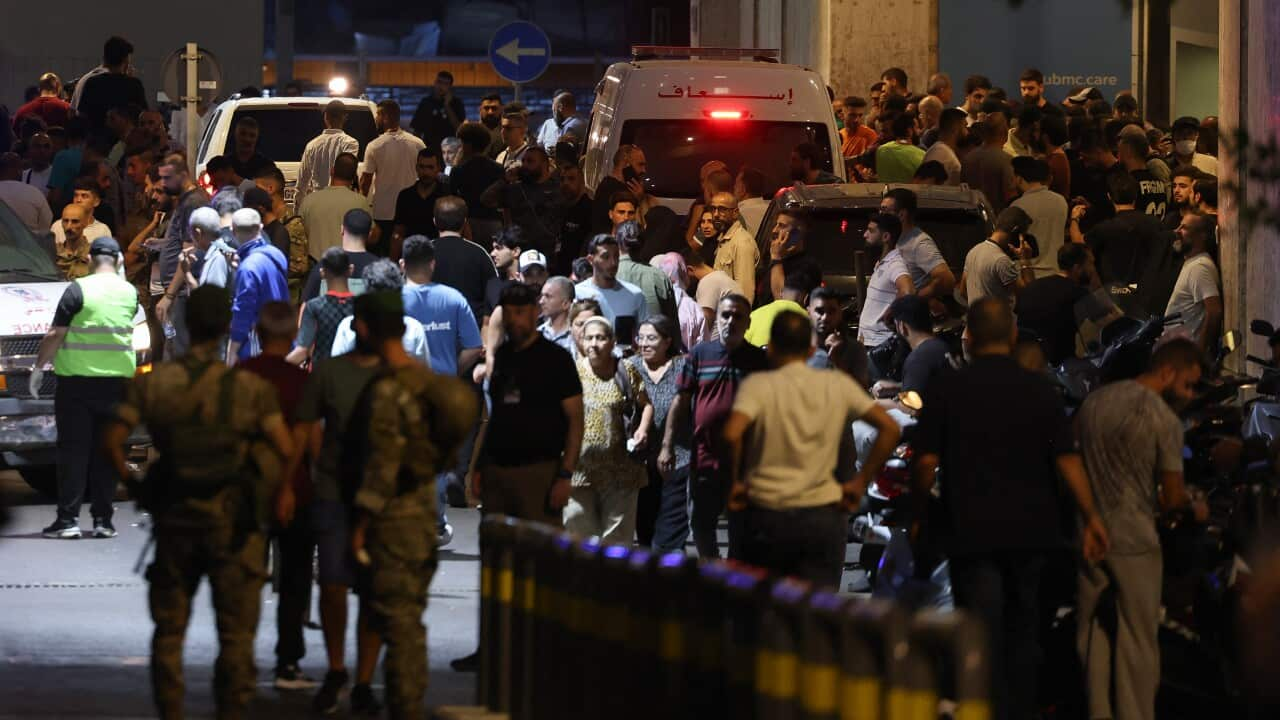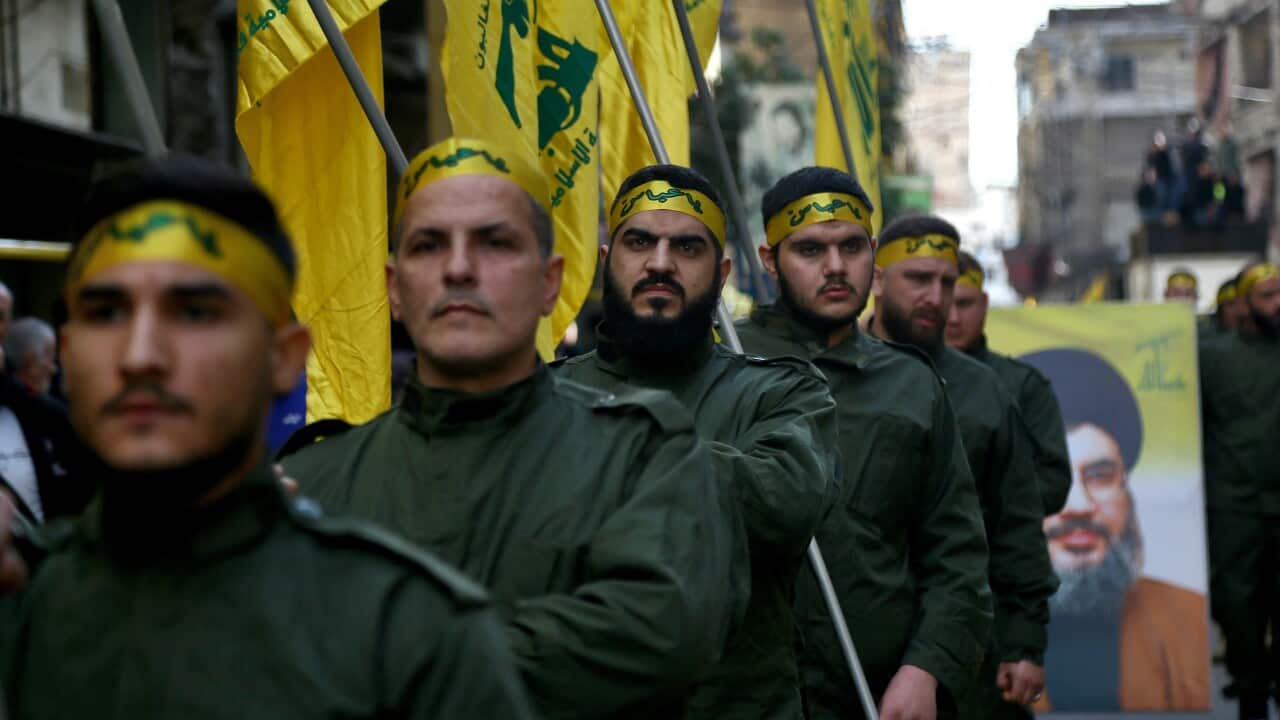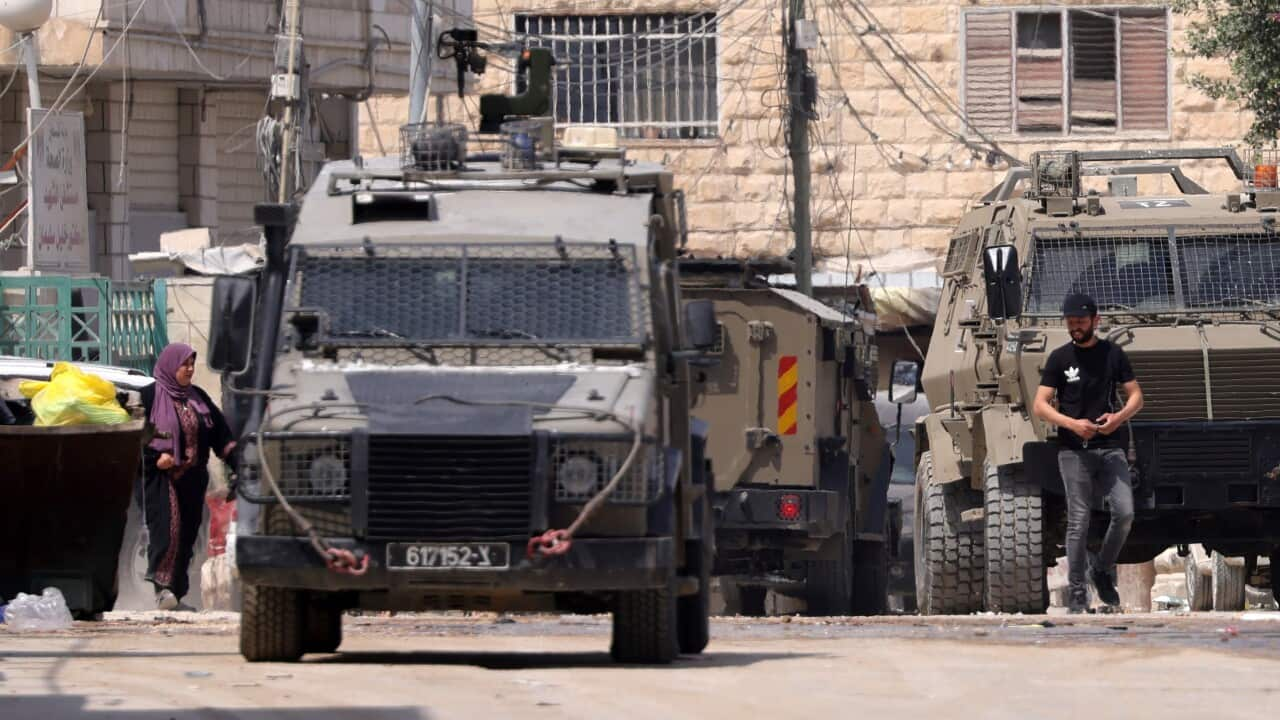Key Points
- Hundreds of pagers used by Hezbollah members detonated simultaneously across Lebanon.
- The country's health ministry said 12 people had been killed and between 2,750 and 2,800 injured by the explosions.
- Hezbollah has blamed Israel and vowed retaliation.
The number of people killed after hundreds of paging devices exploded in Lebanon has risen to 12, the country's health minister said.
Militant group Hezbollah has promised to retaliate against Israel after accusing it of detonating pagers across Lebanon on Tuesday, saying at least nine people had been killed and 2,750 wounded, including fighters and Iran's envoy to Beirut.
On Wednesday, Lebanon's Health Minister Firass Abiad said that "after checking with all the hospitals", the death toll had been revised to "12 dead". He said the number of people wounded was between 2,750 and 2,800.
Hezbollah, in an earlier statement, confirmed the deaths included at least two of its fighters and a little girl.
Some of the wounded who needed treatment had been transferred to Syria, Abiad said, with others "evacuated to Iran".
Lebanese Information Minister Ziad Makary had earlier condemned the late afternoon detonation of the pagers — handheld devices that Hezbollah and others in Lebanon use to send messages — as an "Israeli aggression". Hezbollah said Israel would receive "its fair punishment" for the blasts.
The Israeli military, which has been engaged in cross-border fighting with Iran-backed Hezbollah since the start of the Gaza war in October, declined to respond to questions about the detonations.
The pagers exploded in southern Lebanon, the southern suburbs of Beirut known as Dahiyeh, and the eastern Bekaa Valley — all Hezbollah strongholds.
In one instance, closed-circuit surveillance video carried by regional broadcasters showed a person paying at a grocery store as what appeared to be a small handheld device placed next to the cashier exploded.
A Hezbollah official, speaking on condition of anonymity, said the detonation of the pagers was the "biggest security breach" for the group in nearly a year of conflict with Israel.
The Palestinian militant group Hamas, which is waging war with Israel in Gaza, said the pager blasts were an "escalation" that will only lead Israel to "failure and defeat".
The US State Department said it was too early to say how the pager attacks in Lebanon might impact efforts to secure a ceasefire in Gaza.
It urged Iran — which, with its allies Hezbollah, Yemen's Houthis and armed groups in Iraq, has formed an "Axis of Resistance" against Israeli and US influence — not to take advantage of any incident to raise instability.
Without commenting directly on the explosions in Lebanon, an Israeli military spokesman said the chief of staff, Major General Herzi Halevi, met with senior officers on Tuesday evening to assess the situation. No policy change was announced, but "vigilance must continue to be maintained", he said.
Hezbollah fighters have been using pagers as a low-tech means of communication in the belief they could evade Israeli location tracking, two sources familiar with the group's operations told Reuters earlier this year. A pager is a wireless telecommunications device that receives and displays messages.

Police officers inspect a car inside of which a hand-held pager exploded, Beirut, Lebanon. Source: AAP / Hussein Malla
'Targeting of an entire nation'
Iran's ambassador to Lebanon, Mojtaba Amani, suffered a "superficial injury" in Tuesday's pager blasts and was under observation in hospital, Iran's semi-official Fars news agency said. Reuters could not immediately confirm the report.
The casualties included Hezbollah fighters who are the sons of top officials from the armed group, two security sources told Reuters. One of those killed was the son of a Hezbollah member of the Lebanese parliament, Ali Ammar, they said.
"This is not a security targeting of one, two or three people. This is a targeting of an entire nation," senior Hezbollah official Hussein Khalil said while paying his condolences for Ammar's son.
Lebanese broadcaster Al Jadeed cited Ammar as promising consequences.
"We will deal with the enemy in the language it understands," he added.
Tuesday's blasts added to a hefty price paid over the past year by Hezbollah. The group has lost more than 400 fighters in Israeli strikes, including its top commander Fuad Shukr in July. Security sources in Lebanon said two more Hezbollah fighters were killed in an Israeli strike in southern Lebanon on Tuesday.
Earlier on Tuesday, Israel's domestic security agency said it had foiled a plot by Hezbollah to assassinate a former senior defence official in the coming days.
The Shin Bet agency, which did not name the official, said in a statement it had seized an explosive device attached to a remote detonation system, using a mobile phone and a camera that Hezbollah had planned to operate from Lebanon.
Hezbollah has said it wants to avoid all-out conflict with Israel, but that only an end to the Gaza war will stop the cross-border clashes. Gaza ceasefire efforts remain deadlocked after months of talks mediated by Qatar, Egypt, and the United States.

Friends and relatives of injured people arrive at the American University of Beirut Medical Center (AUBMC) after a number of Hezbollah members' wireless devices exploded in Beirut, Lebanon. Source: AAP / Wael Hamzeh
'Screaming in pain'
After Tuesday's blasts, a Reuters journalist saw ambulances rushing through the southern suburbs of Beirut, a Hezbollah stronghold, amid widespread panic.
At Mount Lebanon Hospital, just outside Beirut, a Reuters reporter saw motorcycles rushing to the emergency room and people with bloodied hands screaming in pain.
The head of the Nabatieh public hospital in the south of the country, Hassan Wazni, told Reuters that around 40 wounded people were being treated at his facility. The wounds included injuries to the face, eyes, and limbs.
Hezbollah fired missiles at Israel immediately after the 7th October attacks by Hamas gunmen on Israel that triggered the Gaza war. Hezbollah and Israel have been exchanging fire constantly ever since, while avoiding a major escalation.
Tens of thousands of people have been displaced from towns and villages on both sides of the border by the hostilities.
On Tuesday, Israel added to its formal war goals the return of citizens to their homes near the border with Lebanon.
With additional reporting by Agence France-Presse












